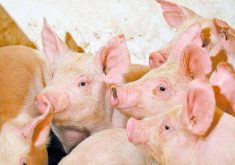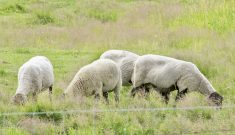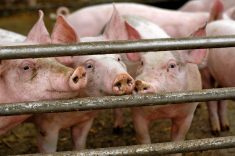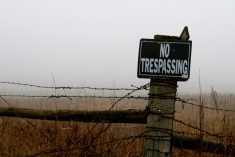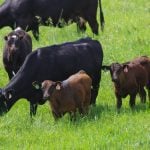Animal activists have shifted to new tactics and more have started launching lawsuits on behalf of animals.
While courts in the United States have not ruled in their favour, more cases from large, well-funded animal rights groups are being filed, said Michelle Pardo, a partner in the firm Duane Morris, which defends companies against animal activist attacks. It has handled cases for food and clothing companies, exhibitions and laboratories that use animals. The company has also dealt with regulations regarding animals.
Why it matters: Legislation in the form of right to farm and that meant to curtail animal activist filming of barns without permission, have meant they have taken to the courts as a new route to challenging use of animals.
Read Also

Canada to have increased presence at Agritechnica 2025
Interest in diversifying trade markets is taking more Canadian manufacturers to Agritechnica 2025, the world’s largest machinery show.
“Even though animal businesses both on the food production side and the animal research side and clothing side are heavily regulated, you still have a lot of criticism on the part of the public and groups that share different philosophical agendas,” she said at the North American Meat Institute animal welfare conference in Kansas City in October.
Pardo’s first case came when the United States Endangered Species Act was cited against the Ringling Brothers Circus for its use of elephants that activists wanted retired to sanctuaries.
“For the first time in the history of the Endangered Species Act, the prevailing defendant, which was the circus, was entitled to attorney fees and that brought them to the table with a settlement of $25 million,” she said.
Environmental court challenges regarding impacts on air or water have been launched against agricultural enterprises with the goal to shut them down.
Activists are also attempting to provide animals with legal “personhood,” she said. Organizations such as the People for the Ethical Treatment of Animals (PETA) and the Animal Legal Defence Fund have tried to provide representation on behalf of animals.
A horse named Justice was removed from an abusive owner and the legal defence fund sued as a plaintiff in Oregon state court. The suit sought money to support the horse after it was moved to a sanctuary.
So far, the courts have not recognized animals as plaintiffs, but the legal community is monitoring these cases.
“Every time one of these is filed, most of the legal community is watching to see if there is going to be a court that bites on this theory and allows these animals to sue in court,” she said.
‘Monkey selfie’
Pardo also cited the so-called “monkey selfie” case, which went before the Northern District of California.
PETA filed a lawsuit as the “next friend” of Naruto the monkey. The monkey took a photo of itself when a photographer dropped his camera. PETA alleged the monkey, not the wildlife photographer, was true owner of the copyright. The court ruled animals have no standing under the Copyright Act to bring lawsuits and criticized PETA for putting forward a frivolous suit and using the monkey as an unwitting pawn in its ideological goals.
Consumer fraud actions have also been filed. Labels like “humanely raised,” “all natural” or “happy animals” were challenged in California.
Farm Sanctuary charged these labels are misleading and said no matter how they were raised, slaughtering and eating animals is not humane. The judge ruled the term “humane” is inherently subjective and is not capable of a judicial review.
“These are actually very serious cases. It is a way animal activist groups and enterprising players can take animal welfare into the courtroom,” she said.
There are large defence firms willing to take on these cases on a pro bono basis.
Keep good records
If a company is challenged in court, good record-keeping is important to show that regulatory requirements were met. Those records should provide information on certification requirements, policies on staff training and reporting of animal abuse.
Having cameras to monitor activities at the farm or facility can be positive or it may have negative effects if bad behaviour is recorded. Activists have at times released animal-handling videos on the internet, which can be very damaging if they show inappropriate behaviour.
Pardo advised clients facing court action to introduce information from veterinarians or animal-handling experts. Scientific evidence can go a long way with judges and juries, she said.
If a facility has faced protests, animal rescues or damage, there are trespass, theft and assault laws in place for protection and the incidents must be reported to authorities. Clients facing a court challenge or a public exposé should conduct media interviews and put the media in touch with veterinarians, third-party auditors or other experts to provide additional information, she said.





